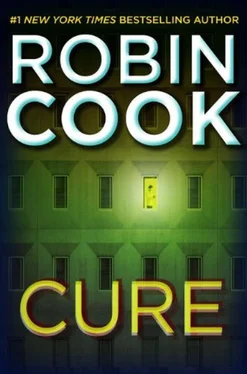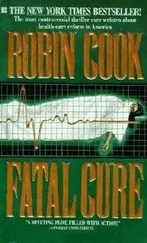“I don’t know him,” Hisayuki said with a shake of his head, hardly listening. He was taken aback by Hiroshi’s statement suggesting that as a Yakuza businessman, he was not patriotic. The Yakuza had always been patriotic. It was part of the unwritten contract the Yakuza had with the government.
“Not only has Fukuda-san tripled our take with our gambling operations in New York, he’s also been laundering the money onsite through shrewd investments with a clever New York placement agent. This placement agent is slick and has no fear of dirty money, which he most willingly uses as venture capital to fund medical and biotech start-up companies, which is his specialty. Usually it costs money to launder money, as you well know, but with him we’ve been seeing up to a forty percent increase in original value. So the revenue Fukuda-san returns here to Kobe is already clean. With such a track record I have come to support him one hundred percent. Whatever he asks for, I give him and do so with confidence, no questions asked. Perhaps as sister organizations we could introduce you to this placement agent.”
“As I said, I don’t know him,” Hisayuki said distractedly.
“Kyoto’s loss and Kobe’s gain,” Hiroshi said, as if a proud father. “Since I appointed him more than five years ago, he has been running the Yamaguchi-gumi operation in New York. He’s turned New York into our most profitable foreign branch. How is your New York branch doing, if I may ask?”
“Reasonably well,” Hisayuki said. Normally he would not have even acknowledged there was a New York City branch of his operation, much less tell how it was doing, but he was asking Hiroshi similarly confidential questions, and Hiroshi was answering. Hisayuki needed Hiroshi to keep talking, because he needed to find out if Hiroshi had any idea why his saiko-komon wanted Satoshi aided. As Hisayuki was trying to come up with the next question without giving away why he wanted to know, it all suddenly hit him, and once it did, he was amazed it had taken him so long to figure it out. The vice minister had to have been correct. The Yamaguchi, through their saiko-komon in New York, Saboru Fukuda, were investing in iPS USA, the start-up company the vice minister had spoken of. It had to be the explanation.
“If your operation in New York is only doing reasonably well,” Hiroshi continued, unaware of Hisayuki’s epiphany, “then why don’t we team up, merge our New York operations and share proceeds in proportion to our respective personnel roster. There should be more cooperation in these tough times between all Yakuza organizations, even here in Japan.”
Glancing briefly at his saiko-komon, Hisayuki wondered if he’d come to the same conclusion, and was eager to ask him once they got back into the car. Looking back at Hiroshi, who was still going on about the idea of their two organizations colluding, Hisayuki wondered if he dared to ask Hiroshi some direct question, like whether or not the Yamaguchi had any stock in iPS USA. He was worried that Hiroshi might come to a similar conclusion, that the Aizukotetsu-kai had a serious financial involvement with iPS Patent Japan, meaning that their respective Yakuza organizations were in direct financial conflict. Of course, Hisayuki didn’t know if the sizes of the investments were anywhere equivalent, but he didn’t think it would make that much difference. It was an awkward situation, since the two companies’ market values were inversely connected like a zero-sum game: If one were to go up, the other would invariably have to go down. Internecine Yakuza wars had been fought over circumstances even less definitively connected, and Hisayuki had the sudden fear that this was going to be a war as well. The Aizukotetsu-kai simply could not afford to lose what they had invested in iPS Patent Japan, nor could they simply pull out, since the company’s cash reserves were nil. “It will be a war,” Hisayuki found himself prophesying and already planning how to limit the collateral damage, and even possibly how to outsource the whole mess to New York City.
“So what do you think?” Hiroshi questioned. He had been continuing to talk up his suggestion of some kind of partnership between the Yamaguchi-gumi and the Aizukotetsu-kai, an idea Hisayuki dismissed out of hand since he knew that if that were to happen, Aizukotetsu-kai would be swallowed up by the Yamaguchi. The concept of partnership was one of the Yamaguchi-gumi’s main methods of expansion. “I tell you, Ishii-san,” Hiroshi went on when Hisayuki failed to respond immediately, “we all have to accept that the world as we knew it in our lifetime is rapidly changing, and we Yakuza have to change, too. The government is not going to leave us alone, like in the past, as evidenced by the anti-gang laws passed in ’92. It’s only going to get worse.”
“When I met with the vice minister just the other day, this issue came up.”
“And what did he say?”
“He said the laws that have been passed had been done so merely for political reasons, and that there was no intention of truly enforcing them.”
“And you believed him?”
“He said that if the government was serious about enforcement, they would have to pass something similar to the United States’ RICO Act, and they haven’t, and I know for certain that there isn’t anything in the works. So, yes, I believed him.”
“With all due respect, Ishii-san, I believe you are being much too trusting and even a bit naïve,” Hirsohi said, beginning a long monologue about his vision of the future with the Japanese government. “Soon the benign neglect that has characterized our relationship is going to change to become progressively more antagonistic. It stands to reason. Even today the government is envious of the money they believe that we, the Yakuza, are, from their perspective, sucking from the economy and paying little or no taxes on.”
As Hiroshi talked, Hisayuki became progressively more uncomfortable as a guest, and realized how easy it would be for the Yamaguchi-gumi to overwhelm the Aizukotetsu-kai, which he worried they might feel was appropriate if Hiroshi were to make the association between their conflicting investments in what was going to be a trillion-dollar industry.
Hisayuki allowed Hiroshi to continue his ranting about the government without offering any contradictions, such as the fact that the government needed the Yakuza. It was his sense and hope that if Hiroshi stayed on the issue of the government vs. the Yakuza, he’d be less likely to have any dangerous epiphanies.
“We Yakuza have to come together!” Hiroshi chimed like a politician on a soapbox, going back to his original issue of encouraging some sort of partnership between their two organizations. Hisayuki let him continue, even encouraging him a degree by nodding and smiling at appropriate times to give the impression that he was even considering the idea.
As Hiroshi droned on, Hisayuki thanked the gods that he’d paused at the beginning of the meeting and hadn’t started as he had initially planned — namely, to relate to Hiroshi what he had learned early that morning from Hideki Shimoda, his New York City saiko-komon . At nine-thirty he’d had a call from Hideki, who reported that as ordered, the threat to Kyoto University’s iPS patents had been significantly reduced because, as requested, Satoshi and his family had been eliminated. He’d been told that the hit on Satoshi had gone flawlessly and was certain to be interpreted as the natural death of an unidentified individual. The only problem, he’d been informed, was that the lab books had not been located.
Hisayuki breathed out with relief, thinking how close he’d come to disaster if he’d started the meeting with such a revelation. It surely would have had the opposite result of what he’d intended, as he never thought for a moment that Hiroshi was involved personally.
Читать дальше












